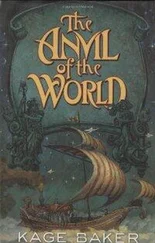I’ve filled seven notebooks since then — not many, I admit, but they loom large. They are all spiral-bound: the spiral is itself inspirational, a bit of chromium cursiveness worming through and uniting otherwise easily scattered pages, just as handwritten script links together what is, on the book’s page, an un-umbilicaled sequence of discrete letters. Over the years, I have stepped on some of the notebooks by mistake, so that their pages turn less freely than they once did: it is as difficult to restore a bent spiral binding as it is to repair an overstressed Slinky. In 1983, saline contact-lens solution leaked into the pages of one notebook in my briefcase, obliterating parts of passages from Bacon, Anthony Powell, Darwin, Johnson, and F. Scott Fitzgerald, as well as the word Memory in a sentence from Martin F. Tupper’s Proverbial Philosophy (1852) that I had found reading the OED ’s entry on rote: “Memory is not wisdom: idiots can rote volumes.” Still, despite these injuries, the page-turning, and the reading, continues to be extremely satisfying.
As a rule I transcribe the work of people who wrote a long time ago. It is a way of momentarily reanimating them, slowly unwinding their sentential shrouds; it is the only sure way to sense their idiosyncrasies. Sometimes I whisper the words while I copy them. On December 5, 1994, I copied something from Richard Porson (1759–1808), a classical scholar who could recite much of Smollett’s Roderick Random by heart, but who drank too much and wrecked his life. “Anyone might become as good a critic as I am,” Porson says, “if he would only take the trouble to make himself so. I have made myself what I am by intense labour; sometimes in order to impress a thing on my memory I have read it a dozen times and transcribed it six.” I was struck by this before I copied it over, but only by copying it over did I notice the unobtrusive poise of “make himself so.” Porson spent years in poverty; from him I also transcribed this sentence: “I used often to lie awake through the whole night, and wish for a large pearl.”
My notebooks are seven and three-quarter inches tall and five inches wide; they originally contained eighty sheets. (I’ve torn out pages in the back of some of them.) They are all “narrow ruled.” The first one has a postcard from the National Gallery of Bellini’s St. Jerome taped to the cover — I wanted to cover up the words “university note book” printed in eighties moderno-lowercase type. Bellini’s Jerome is an old man in knotted rags reading a big red book in front of a superb thesaurus of rock formations. A lion sleeps nearby. A more recent copybook bears a postcard of Albrecht Dürer’s Saint Jerome —the light through the bottle-glass windows in Dürer’s interpretation of Jerome’s study casts rows of shadows on the wall that resemble schematic drawings of plant cells, or softly spiraled cinnamon rolls arranged on trays, and there is a lordly gourd or squash presiding from an eyelet in a roof beam. The coiled feelers of this vegetable have nothing to entwine; they exult in their midair inflections and self-induced spiral bindings. My Dürer-decorated notebook begins with a vocabulary word, phlyctenule, that I found reading Webster’s New Collegiate Dictionary (1975): a phlyctenule, for those who may be curious, is a small pustule on the cornea. I was interested in the disgusted “flick” that begins it, interested that it included its own revulsion — words with exotically unknowable foreign roots sometimes survive because we hear ordinary meanings in them.
On January 15, 1988, and then again on June 7, 1994 (forgetting that I’d already done it once), I transcribed George Saintsbury’s judgment of a certain work of Erasmus. It comes from a posthumous collection of Saintsbury entitled A Last Vintage:
Perhaps the best thing in it [Saintsbury writes] comes from the mouth of the unblushingly illiterate and good-for-nothing abbot when he says, ‘With immense labour learning is obtained: and then you have to die,’ which is better still in its native Latin, ‘Immensis laboribus comparatur eruditio: ac post moriendum est’ ; and which, if not original, remains consummate and unanswerable.
“Consummate and unanswerable” (a phrase worth whispering to yourself three times slowly) has an autobiographical heartfeltishness: Saintsbury, more than most hard-reading garreteers, labored to accumulate and keep in good repair a productive enormity of book-memory. He consumed a French novel every morning before breakfast, but that was just warming up. All day his bookmarks were near at hand, finding pages to mark, and after dinner he was at it still, reading on, and writing with learnedly brimming charm and chattiness about what he read; with the result that there are few French, English, Greek, or Latin writers of more than antiquarian interest in whom he hasn’t found some trait, or tag, or particularity, worth praising. He is the greatest praiser in the history of criticism — each thing he reads provokes him to written acknowledgment in the form of a review-essay thank-you note, and every encountered writer feeds his own genial style without misdirecting or overburdening it.
Lots of passages from George Saintsbury have gone into my copybooks, and a fair amount of William James, too; some Olivia Manning, some Iris Murdoch, some Dryden, some Updike, some Philip Sidney. Here’s a sample Olivia Manning passage, from The Great Fortune:
They had been served with a rich goose-liver paté, dark with truffles and dressed with clarified butter. Inchcape swallowed this down in chunks, talking through it as though it were a flavourless impediment to self-expression.
Here’s another Manning extract, from The Spoilt City:
Yakimov, discomforted by a sense of lost advantage, stared into his empty glass for some moments before it occurred to him that he had in his possession the means of re-establishing interest in himself. He drew from his hip pocket the plan he had found in Guy’s desk. ‘Got something here,’ he said. ‘Give you an idea. . not supposed to flash it about, but between old friends. .’
He handed the paper to Freddi, who took it smiling, looked at it and ceased to smile.
In copying these over (in 1985) I was forced to take stock of every hyphen, every observational glance. I became Olivia Manning’s flunkey, her amanuensis, her temp worker, in effect saying to her, for however long it took to thread her words on the page, Where you go, I follow. Such labor is usefully humbling, because it delivers you back into the third grade, when you copied things off the board and had to pay attention to the little boat shape in the last stroke of the cursive capital B, but it isn’t mechanical or fancy-cramping because the transcriber’s mind can think its own pinstriped thoughts on the sly, betweentimes.
And, just as helpfully, every appealing highpoint that you read with transient delight can become, through commonplacing, merely average: it is no longer the jewel it was when you pried it from the dried salt marsh of its page, but has now itself been reduced to the primordial matter out of which only your own writing can lift and deliver you — you become, even textually, Sir Thomas Browne’s Amphibian, “compelled to live in divided and distinguished worlds”—between the belly-squirming world of sedulous apprenticeship, and the nakedly leaping bipedal world of self-expression. Thus Bach copied out Buxtehude’s and Vivaldi’s music to learn its secrets, staying up late in his brother’s latticed music library even though forbidden to do so; thus Wallace Stevens copied out in his commonplace book (entitled Sur Plusieurs Beaux Sujets ) what D. J. Bach had to say about Schoenberg; thus E. M. Forster in middle age copied out Tennyson and Macaulay; and thus Gibbon copied over Pascal, and Giannone’s History of the Kingdom of Naples:
Читать дальше












